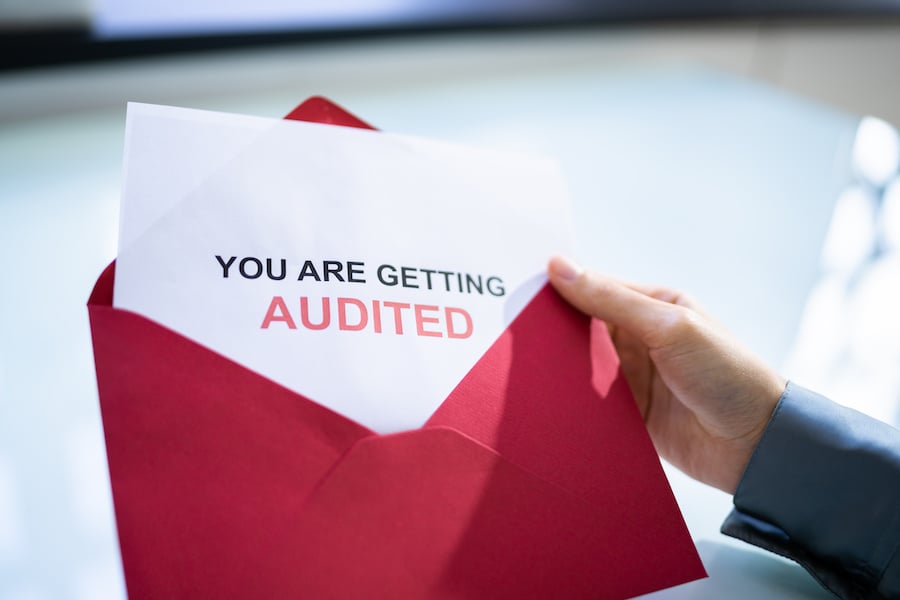
While small business audits are less common than those for both individuals and larger corporations, studies indicate audit rates are on the rise, and according to the IRS, small businesses are the largest source for untapped tax collection. With a sluggish economy, growing federal deficit and massive tax gap, small businesses can expect more scrutiny of their spending and tax code compliance. With that said, an adequate accounting system and special attention to the following potential triggers can help keep your business off the IRS audit list.
No Work And All Play
Whether you love it or loathe it, part of business development involves networking and entertainment expenses. However, having too much fun on the company’s dime will raise a red flag for the IRS, as will seemingly personal expenses or hobby interests that are passed off as business costs.
Be cognizant that the “little things” you tack on to your business, like vehicles, home furnishings or lavish entertainment for a modest business, will be cause for IRS concern. So, remember to keep it realistic, save and document your receipts, and only claim up to 50% of food and entertainment expenses as a business deduction.
Got Cash?
If your business handles a lot of cash transactions – such as a restaurant or bar, convenience store, Laundromat or even vending machine business, your audit potential is greater than average. The nature of your cash business provides more opportunity for fraudulent behaviors, such as skimming, and this means the IRS may pay closer attention to your claims. Particular devotion must be made to every cash or cash equivalent transaction of $10,000 or greater. Each of these transactions must be recorded on Form 8300, and if you fail to do so, your business risks an audit, fine and potential criminal investigation. (IRS Form 8300)
To avoid unwanted IRS attention, it’s important that all transactions - accounts payable and accounts receivable - be properly recorded, with supporting documentation attached. The most effective and efficient method to achieve this means is through an automated accounting system and merchant aggregator that allows you to scan, store and pay online, with all documents syncing between your accounting software, such as Intuit’s QuickBooks, and storing in one convenient and cloud-based location.
Besides setting and sticking to a budget and tracking and recording your expenses and earnings, it’s critical that you monitor the cash flow of your business. The best way to achieve this is by using accounting software that incorporates a cash flow management tool. A strategic approach to your accounts payable can have a positive impact on your overall financial health and business vitality.
Payroll Blues
Forget how you define your workers – it’s how the IRS defines them that matters. If you have employees, it’s absolutely mandatory that you file payroll tax returns and pay all of your payroll taxes on time. And, if you suddenly take on a slew of “independent contractors” instead of employees, the IRS will take notice (read the IRS defined differences ). Using the contractor label to skirt the associated employee payroll taxes will capture the eye of the IRS, and could cost you substantially in penalties and interest.
One easy way to alleviate the headaches involved with payroll taxes is to outsource your payroll functions to a payroll service provider. They can handle the filing and payment of all of your company’s payroll tax returns and deposits, and with their bonded services, you can rest assured that your payroll tax payments are being paid properly and on time, or on their dime.
No 1099 Unturned
The IRS compares the amount you report on your claim to any of the 1099s or W-2s it receives. If your numbers don’t add up, then that’s audit-worthy. The added paperwork and level of required tracking this creates places an additional burden on small businesses and their oftentimes under-trained or over-tasked bookkeepers. Fortunately, effective and affordable web-based tools and services exist that can automate and track small business accounting to ensure accuracy, compliance and internal controls. For instance, integrating a web-based tracking system with the company’s accounting software program can reduce some of the double entry and paperwork storage required. An outsourced bookkeeping service can take over your accounts payable and accounts receivable, as well as establish additional internal controls to avoid costly human errors or fraudulent behaviors.
Due diligence is especially important for manual processes. For example, self-employed contractors can ensure they file their taxes right the first time by calling clients and seeing if their numbers match up. Employers can download a printable W-2 form for their employees and scan the document. This makes it more likely that workers will file their taxes correctly.
Every endeavor has its pros and cons, and it’s likely that most small business owners would say taxes are on the negative side of that equation. However, implementing best practices for business accounting processes now, such as using QuickBooks to budget, record notes and scan receipts into your journal; and adopting business technologies that automatically sync with your accounting system, will not only improve your overall accuracy and efficiency but will go a long ways towards making tax season more tolerable for you and your growing business.



